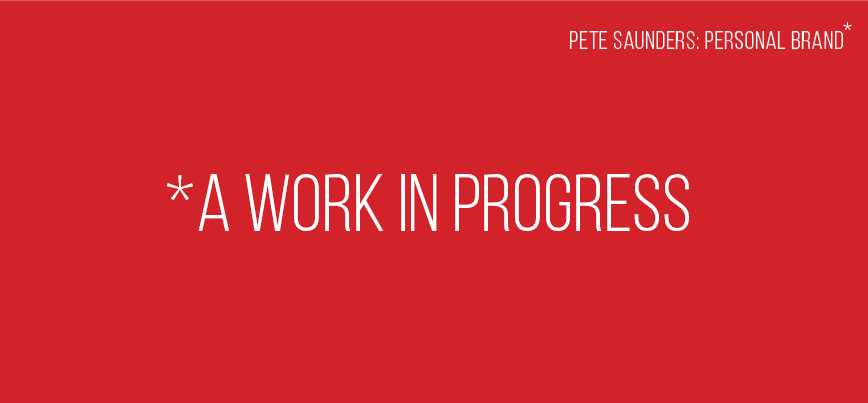
A few months ago, I was introduced to the notion of “personal branding” by my old boss and one of the best in the game, Pete Singline. Pete described to a small group of us what it meant to go through a personal branding workshop, the types of insights it may uncover and the outcomes you could set up for yourself.
As a naturally curious person, my interest was certainly piqued. The obvious assumption is that a personal brand is essentially creating your own identity/logo (thanks, Trump). While in some ways that is loosely correct, it does the process a total disservice.
The way Pete described it, the process of branding was designed to unlock your passion, your purpose and energise you to start making conscious decisions about how you achieve your goals. Some of those goals are professional and others are personal. While the outcomes do sometimes overlap with how a company brand strategy is written (essence, values, actions etc.) it was the depth to which the questions forced you to think about yourself that was of most value.
The core difference between having the process lead by a person like Pete, versus many others who purport to help you create a personal brand, really comes down to that individual — the facilitator. While some may ask you questions like “is this how you want to curate your life on social media?” or “what blog topics will help you get noticed?” this particular process re-shifts the focus and helps change your mindset that e.g. work is an extension of how you define yourself as a person, and not what defines you.
I struggle to reflect on my own personality and define what drives me. I enjoy working through such concepts with other people, because I find that I learn more through facilitation and action (kinesthetic learning approaches). However, really digging deep and looking at the emotions that lead to certain actions is difficult and often confronting for me. I used the personal branding workshop as a way to force myself to think more closely about my own context, in a strange version of therapy. It was like placing a magnifying glass on all the things I would otherwise try and keep buried.
Some elements were certainly difficult, but over the course of the six sections, I became more at ease and confident with the approach, to the point where, once I actually sat down to write the final part, I found the words flowing easily. I had managed to internalise and understand what all the answers meant, and it left me with a short document that highlights some incredibly important and lofty ambitions for the next twelve months.
Going through the process with a friend was definitely important, as it allowed the opportunity to discuss, dissect, critique and refine. Someone who is happy to question what you’ve written and why — not to harm, but to push you to continue beyond the surface. As a generalisation, finding those sorts of people in your life is not easy, but you should cherish them — they are incredibly valuable and will help you become more aware and content with your own surroundings.
What have been the benefits of going through the personal branding process?
As luck (or stubborn choices) would have it, the timing was ideal as, in parallel to the brand work, I was also exploring opportunities to create a rounded work life that covered all the things I wanted to do. These included starting my own business, working for clients and causes I care about, mixing freelance/contract and volunteer work and somehow aiming for a sweet spot that I never would have been confident enough to aim for earlier this year. I’m still finding that balance, but by wrapping measures of success around my decisions, I can start to understand more about what works and what doesn’t.
What have I learned along the way?
I learned that the past pressures I would inflict on myself were not only unfair but damaging. I learned that I have a more defined set of skills than I previously understood. I learned that the things I viewed as important and wanted in my life were quite frequently not ones I would pursue.
How do you start to implement the outcomes?
A practical example is the job I recently started. Months ago, I would have been tentative about my approach and slowly worked my way into the existing structures. But the work I want to be doing does not allow for that — it requires being open and honest about what you can and cannot do, and making sure that any gaps are being filled. It requires fast thinking and acting and not only clarity, but confidence in the decisions that are made. Without gaining personal clarity and understanding how I should be approaching new situations, I would have had zero clarity professionally about my strengths and weaknesses.
Is personal branding for everyone?
Ultimately your outcomes depend on who you are and how you define your own success. Having a strong support system in place is really important but the critical driver is you. The whole process has turned a rather soul-crushing year into one that is ending full of ambition and excitement for what’s to come next. If you remove the preconceived notions of what you expect a personal brand to look like, chances are you’ll extract a huge amount of value from the process. I’m biased because I love the world of branding, but if you approach it in the right way, with the right people, I think there’s something there for everyone.